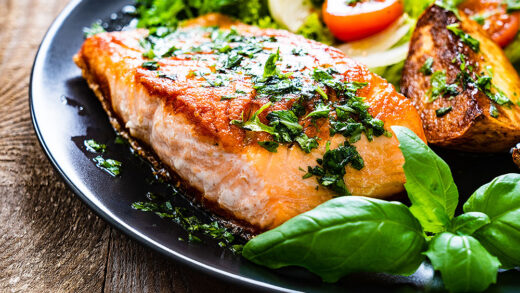After Hurricane Beryl swept across the Houston area last Monday, 2.2 million residents were without power. Restoration has been slow. CenterPoint Energy, which serves most of Houston, was the butt of jokes last week when Whataburger’s online map of closed locations provided more detailed information about power outages than the electric utility provider could offer at the time. CenterPoint says it expects 10 percent of customers to still be without power a week later, and a newly released outage map estimates that some will not have power restored until July 19.
The middle of summer is a terrible time to be without power in Houston. Area hospitals have seen a spike in heat-related emergency room visits, as well as visits for carbon monoxide poisoning from improper use of home generators. It’s a mess, but this kind of mess is becoming common along Texas’s Gulf Coast. A derecho storm caused somewhere between $5 billion to $8 billion in damage in the Houston area in May. The cost of damages from Hurricane Beryl will likely be higher, but these numbers are so large as to be abstract for most of us, kind of like the $6 billion in profits (not revenue) CenterPoint Energy brings in annually.
Bringing the scale down to just one small business might be more helpful in understanding the costs of these storms. I talked with Erin Smith and Patrick Feges, the married owners of two Feges BBQ locations in Houston, about the hurdles and challenges of prolonged closures for the business and their employees. Having endured the winter storm of 2021, the derecho this year, and Hurricane Beryl, they know all too well about the true costs of operating a restaurant in the Gulf Coast now that the area has become increasingly prone to crisis situations that we used to consider rare occurrences.
“You don’t really know what to prepare for,” Smith said, “but it’s not shocking when a winter storm shuts us down for several days, and it’s not shocking when a hurricane or massive flood situation closes us down for a few days in the summer.” They’ve prepared as best they know how, and as with most restaurants, insurance coverage is their main defense. But insurance has its limitations.
Smith and Feges describe their policy for Feges BBQ as “industry standard” and similar to those used by their barbecue peers in Houston. It covers product loss from prolonged power outages, and for the restaurant’s profit losses it includes business-interruption (BI) coverage, for which they pay an additional premium. I was surprised to learn that the BI kicks in only after 72 hours of interruption, so coverage begins on the fourth day and covers only the fourth day and after. They’ll never recoup the profit losses of the first 72 hours of any closure, which is the hardest pill to swallow.
That was particularly bad news after the derecho in May forced them to close the newer Spring Branch location for a week, starting on a Friday. (Feges BBQ has a smaller location in Greenway Plaza, where the electrical infrastructure has proved more robust this year.) Profit losses are determined by an insurance adjuster who compares the day of the week a business is forced to close with the profits normally made on that particular day of the week. That meant Feges BBQ’s most profitable days of Friday, Saturday, and Sunday were not covered. The fourth day, Monday, was a day it’s normally closed, so only Tuesday, Wednesday, and Thursday would be covered for a full week of closure. The timing was more favorable for Beryl, which brought Houston to a halt on Monday, and the restaurant regained power to open Sunday. Still, even with business-interruption insurance, they were made far less than whole on both occasions.
Product loss is more straightforward. Any raw or prepared foods that have to be thrown out because of the power outage are covered—that is, if the business owner documents it correctly. “Take a picture of each item you throw away,” Smith said, even if it means having a thousand photos to share with the insurance company. An owner might be tempted to empty a rapidly warming walk-in cooler or freezer as quickly as possible, but losses need to be documented or they won’t be covered. Feges said it’s best to document the event like a routine product inventory, with line items for everything that had to be tossed. One thing that can’t be recovered is the labor that went into trimming and seasoning the meat or in preparing the sides, sauces, and pickles that must be thrown out. That’s just another hidden cost in these disasters.
Smith said she learned about “dirty power” after the derecho. When the power goes on and off, it can cause electrical spikes and surges. This can do real damage to equipment such as air conditioners, freezers, and coolers. Several electricians urged Smith to buy expensive surge protectors for this equipment after the restaurant’s AC units stopped working properly after the derecho. She thought it was a scam but did enough research to feel comfortable paying several thousand dollars for the improvement. Now she has been hearing from other restaurateurs wondering why their units are on the fritz, and she’s giving them the bad news about the costly surge protectors they’ll now have to consider.
As for the lost pay of hourly employees, Feges BBQ does not have insurance coverage for that. After the derecho, it turned to the Southern Smoke Foundation (Smith is a board member), whose mission is to provide financial relief to food and beverage workers in times of crisis. For Houston-area workers, those times are coming more frequently, and Feges BBQ will once again rely on the foundation after Beryl.
Smith and Feges said the safety of their employees is far more important, but they couldn’t reach many of them after the storm. Along with electricity outages, internet service was out and cell service was spotty. “All the ways we communicate are so dependent on Wi-Fi and cellular,” Smith said, and disasters such as Beryl highlight just how fragile that infrastructure is.
If you’re thinking they could just increase their insurance coverage, Smith and Feges are aware. They could eliminate the 72-hour window for BI, add employee wage coverage, and lower their $5,000 deductible for each event, but all of that would raise their insurance premiums, which are already going up. Because Feges BBQ is located in disaster-prone Houston, its premiums increased 8.6 percent from last year to this year. Now, after two major claims in 2024, they’re bracing for another increase when the policy is renewed next year. “The cost of insuring a business is going to be one of the most debilitating costs that we experience, particularly in the Houston area,” Smith said.
The most common question Feges said they’ve been asked by friends and customers is “Have you thought about getting a generator?” They have. It is a massive expense that at best would delay food spoilage. “It would not have solved our problems in either situation,” Smith said. Food in a functioning cooler still goes bad after a week if the restaurant is closed, and a generator large enough to keep the air conditioning and all the fixtures and lights on in the restaurant’s kitchen and dining room isn’t feasible. A generator would help if they could guarantee a power outage of two to three days, but “we have yet to see CenterPoint restore power in that time frame during a major event for us,” Smith said.
“There’s a balance we have to consider,” Feges said referring to the choice between paying to mitigate their risks with expensive equipment and higher insurance premiums or dealing with a financial penalty on the back end in a disaster’s wake. But much like the American health-care system, where surgeries and emergency care are more readily covered than preventive medicine, insurance companies don’t reward restaurateurs for buying generators or surge protectors. It’s as if they’re encouraged to experience a loss in order to receive a financial reward.
“There was no damage to our house or our restaurants from the storm,” Feges said of Hurricane Beryl. The same was true at Feges BBQ during May’s derecho and the winter storm in 2021. Their losses were based solely on a lack of electricity. That’s particularly frustrating after CenterPoint hiked rates earlier this year so it could harden its infrastructure and passed the costs of repairs after the derecho to its customers, yet was a distant third in tree-maintenance expenditures per customer (falling trees and limbs are the major cause of downed power lines) among the electric utilities supplying the Houston area. Why should their customers be responsible for buying generators and paying higher premiums for a problem that’s not theirs to fix? “The company whose sole job is to give us the basic service we pay for is not taking care of the infrastructure,” Smith said. “It is beyond frustrating.”
This is the story of just one business, so extrapolating these issues to thousands of other businesses and millions of households in the area is important. So many other restaurants with prolonged power losses are suffering from the same hidden costs of higher insurance premiums that don’t cover all their losses during these now frequent weather events. “It’s life living on the Gulf Coast,” Feges said dejectedly.
“I felt like a fighter last time,” Smith said of the Feges BBQ response to the derecho. They stoked their wood-fired smokers outdoors and cooked the meats left in their coolers, serving it to those in need. This time, Smith said, with internet and cell services down, they wouldn’t have been able get the word out. She and Feges joked that #HoustonStrong sounded like a broken record. “It’s more like #HoustonTired,” he said.
Smith said it was a huge relief to get power back to the restaurant Friday evening. They opened for a full day of service on Sunday rather than the normal lunch service, and their neighbors came out to support them in droves. Because when billion-dollar energy companies can’t keep the lights on after disaster strikes, Smith said, “the community is what saves you.”
#Gulf #Coast #Restaurants #Survive #Disaster #Texas #Monthly




